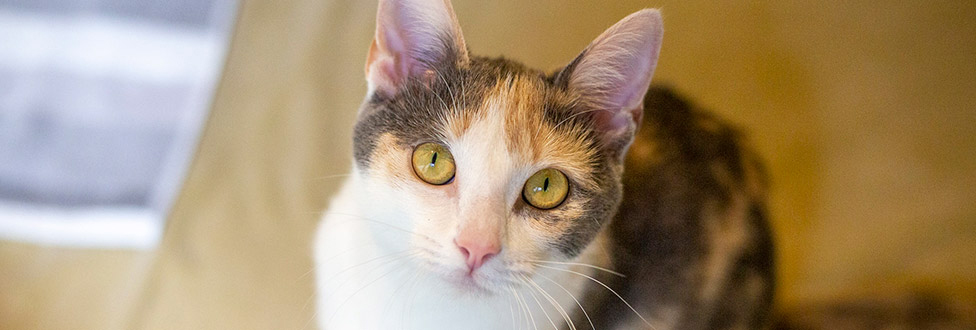Feline Focus: How to Choose the Right Companion Cat
Living in a multi-cat household can be extremely rewarding. Contrary to popular belief, cats are highly social creatures that benefit from feline companionship. Cats will often play together, groom each other, and give each other much-needed socialization. So if you’re considering adopting a new feline pal, here are some tips for finding the “purrfect” match:
A New Cat or a Companion Cat?
It is important to know the reason why you’re looking to adopt a new cat. Is the cat for you, or is it a friend for your resident cat? If the former, then the cats only have to tolerate each other and be able to share territory peacefully. If the latter, then you’re looking for a cat who will be interacting with and getting along with your resident cat. If that is the case, then whichever feline you choose must be a good match for your cat, with your own preferences coming in second.
Kitten or Adult?
Age isn’t so important. It’s often thought to be easier to integrate a kitten into a household simply because they are less threatening to a resident cat than an adult. However, there are plenty of adult cats who would make great companions, and because feline personality doesn’t begin to solidify until a cat is about 8 months old, it is easier to make a good match with an adult.
The most important thing is to match energy level/playfulness and personality. Ask yourself the following questions:
- How energetic is my cat? How often does he/she need to play?
- What type of play does my cat like? Is he/she very athletic, or more mellow during playtime?
- Is my cat outgoing or shy?
- Has my cat had previous experience living with or meeting other cats? How has he/she reacted?
For older, less playful cats, a kitten might not be the best choice. Kittens are in constant motion and might aggravate a mellower cat. A kitten might also not do well with an extremely active resident cat who could accidentally hurt a kitten during play.
Male or Female?
With spayed and neutered pets, certain pairings are easier, in general, to integrate. In order:
- Male/Male companionship is the easiest
- Male/Female is intermediate
- Female/Female is more difficult
Female cats can sometimes be more territorial with each other than (neutered) male cats. However, there are always exceptions. There are female cats who come into the shelter who are wonderful with other cats, and there are males who refuse to like other cats, so always ask a staff member or volunteer about a particular cat you’re interested in!
At the Adoption Center
When you’re adopting a companion cat, it’s important to let a volunteer or staff person know about your resident feline. We’re happy to help you pick out the best match and we know our cats pretty well!
Making your home a multi-cat home can be a great experience, and can add enrichment and socialization for your resident cat. But for the best chance of success it’s important to make a good match.

